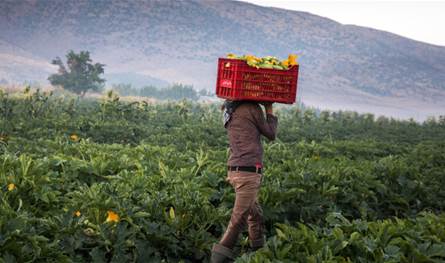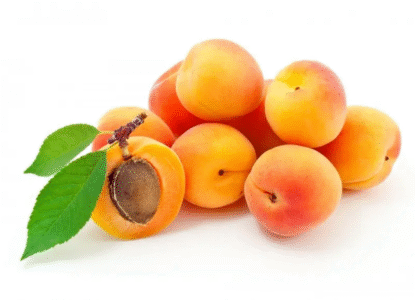2024 was a year of challenges… Will the agricultural sector revive with the start of the new year?
January 4, 2025

Agriculture in Lebanon faces many challenges and problems that affect the productivity of the agricultural sector and its sustainable development. Among the most prominent challenges that the agricultural sector and farmers faced during the past year were climate change and delayed rainfall, according to the head of the Global Environment Party, Dr. Doumit Kamel.
Challenges and difficulties
According to what Kamel told “Lebanon 24”, climate change is not alone at the top of the list of challenges, but the conversion of most of the rivers in Lebanon into sewage and industrial sewers has directly affected crops and their irrigation, especially the sides of the Litani River and others, which has had a bad impact on agricultural production and crops and consequently Exported abroad.
In addition, Kamel stressed that the Israeli war on Lebanon led to the destruction of entire agricultural areas, pointing out that farmers planted their lands this year about three times, and each time the lands were destroyed as a result of the aggression.
He said: “The first planting took place in September, but the rain did not fall sufficiently, and then in October, then in November, until the beginning of January, when the rain did not fall abundantly either, which forced the Beirut and Mount Lebanon Water Corporation to… An emergency plan because water was only reaching citizens for a few hours every 4 days.”
Kamel confirmed that the crops and fruit trees suffered huge losses because the crop was affected by the high temperature first and the water outage for 170 days, and thus the citizen was forced to face low production and high costs in the market.
While Kamel considered that the sectors were affected by the challenges faced by the agricultural sector, including labor, industrial, and food, he stressed the importance of having plans and readiness to protect agricultural production in the future.
Hence, he stressed the need for the relevant ministries to intervene to develop serious plans to reform agricultural production in its entirety, especially since the region has entered into climate change in its broad scope.
It is not possible to talk about the challenges that the agricultural sector in Lebanon has faced recently without mentioning cross-border smuggling into countries such as Syria, Iraq and Jordan and the unfair competition it causes for Lebanese products. This has been reflected in prices in the local market, which harms Lebanese farmers.
The lack of sufficient resources to invest in infrastructure or to provide financial and technical support to farmers also constitutes a difficulty in the path to a successful agricultural sector.
Moreover, competition from imported products has in turn posed a threat to the local farmer, as these products are often cheaper than local ones due to lower production costs in some countries.
Possible solutions
Environmental and agricultural specialists are relying on a set of solutions to advance the sector, including stimulating investments in agricultural infrastructure, such as improving irrigation and road networks, and developing agricultural markets.
Water management can also be improved by adopting modern irrigation techniques such as drip irrigation, as well as establishing projects to increase water reserves and storage.
Specialists are calling for the provision of training programs for farmers on modern agricultural techniques and production management, as well as reforming agricultural policies by developing a strategic plan to support the agricultural sector, while increasing financial incentives for farmers.
In conclusion, if these challenges are addressed systematically, the agricultural sector can return to what it has always been, an important pillar of the national economy, and contribute to achieving food security and environmental sustainability in the country.
« Aqis: We will wait for the Lebanese government’s decision, hoping it will not be delayed









